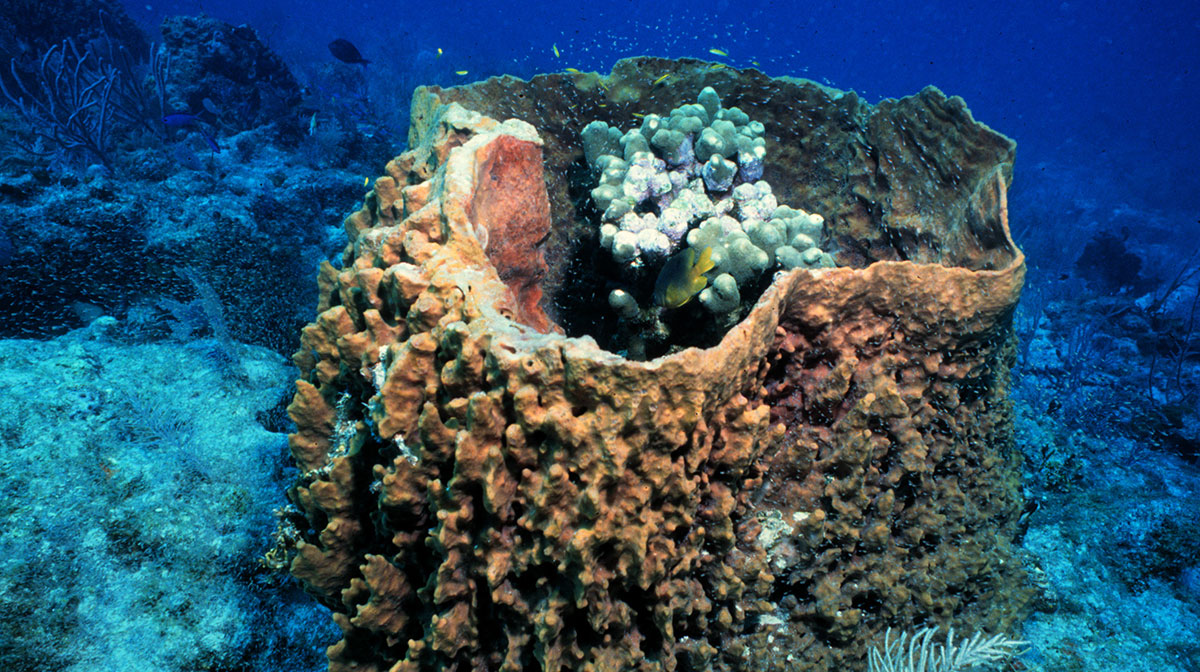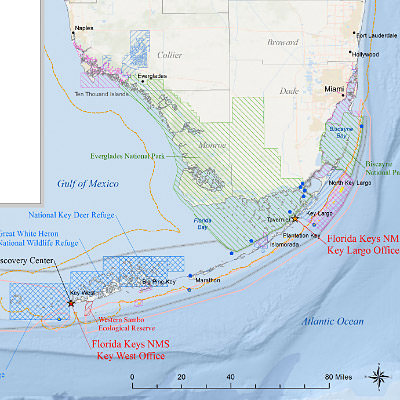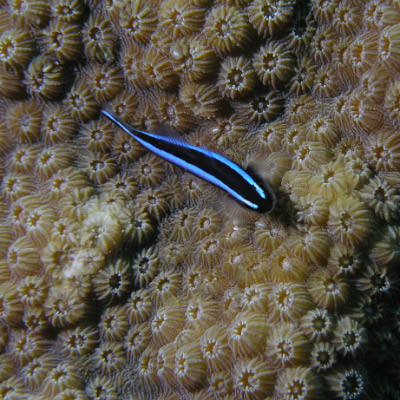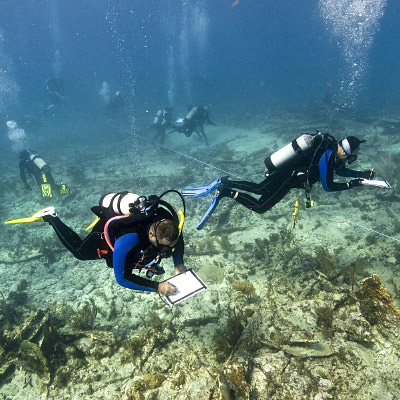Florida Keys National Marine Sanctuary

Barrel sponge in Florida Keys. Credit: NOAA
Florida Keys National Marine Sanctuary is one of the largest marine protected areas in the United States, encompassing 2,896 square nautical miles (9,933 square kilometers). It was designated by Congress and exists under federal law, and became effective in state waters with the consent of the state of Florida; FKNMS is jointly managed by NOAA and the State. Marine zones for multiple uses, including 24 highly protected “no-take” areas (6% of the sanctuary), have been in place since 1997. The sanctuary helps protect an estimated 6,000 species of marine life, including the nation’s only bank-barrier coral reef that lies adjacent to the continent and one of the largest seagrass communities in this hemisphere. An estimated 400 underwater historical sites also lie within sanctuary waters, 14 of which are listed on the Department of the Interior’s National Register of Historic Places.
NOAA’s authority to manage the resources of FKNMS exemplifies the sentinel site designation. Sanctuary managers use sound science and the best technologies available to help facilitate multiple uses that are compatible with ecosystem-based resource protection. For example, they rely on long-term ecological research to better understand changes to critical habitats and their associated marine life, as well as to assess the relationship of human use to those changes. Furthermore, social and economic monitoring documents the changing levels of use and investigates the socioeconomic impacts of management decisions on particular user groups and stakeholders. These types of long-term studies can in turn help managers and stakeholders identify ecological and socioeconomic targets for maintaining or improving sanctuary ecosystem services. It is only through this inclusive approach that the complex problems facing the sanctuary can be adequately addressed. Interested graduate students and principal investigators should contact the Research Coordinator to discuss their research ideas prior to launching a project, as research activities require a permit from the sanctuary.




